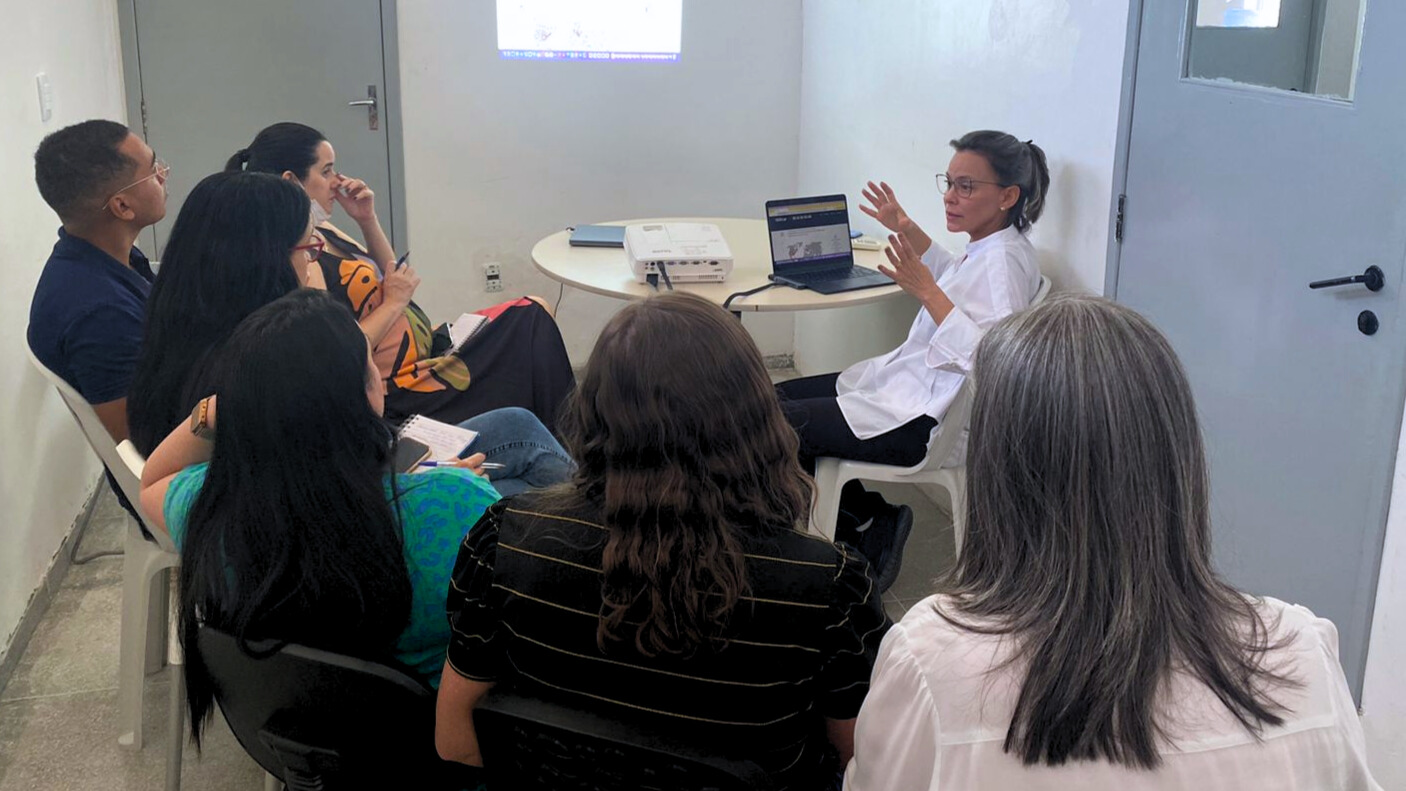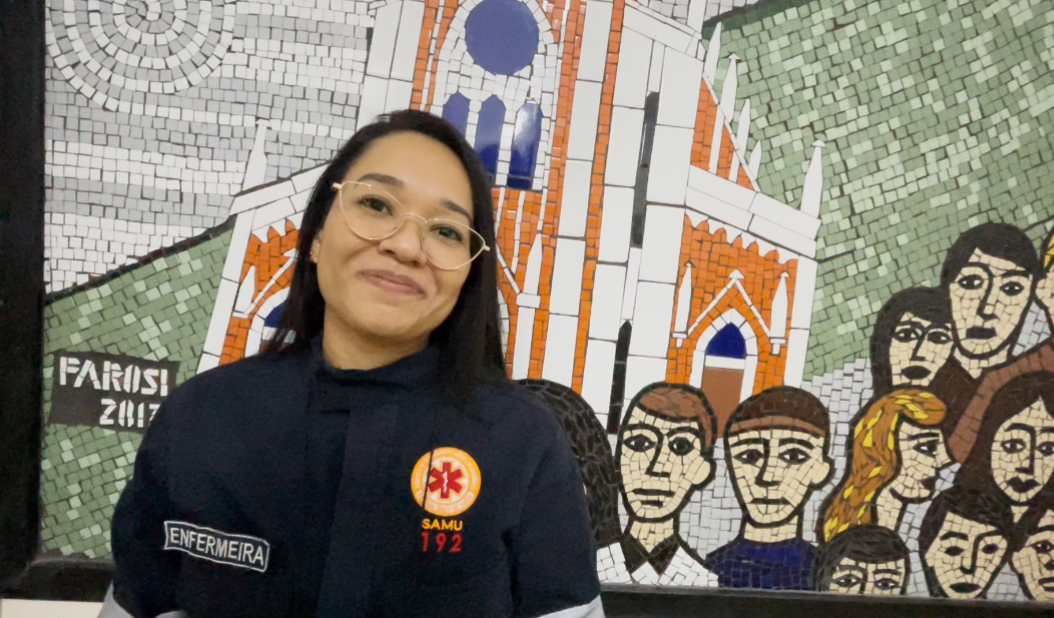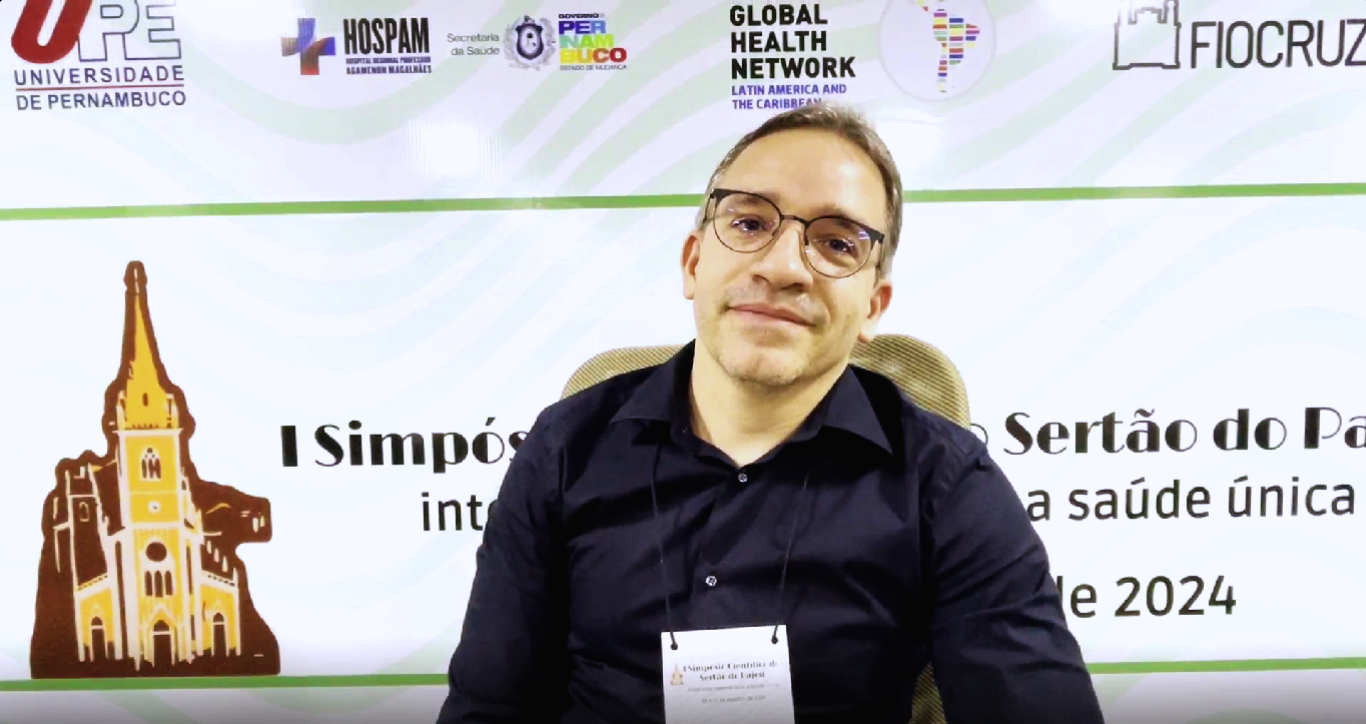Fiocruz gathered 150 people to discuss research and public health in the interior of Brazil
The “Scientific symposium of Pajeú: integrating knowledge for one’s health” took place on 16-17 October with over 150 attendees in person at the city of Serra Talhada, in the state of Pernambuco, in the interior of Brazil. The event was promoted by The Global Health Network Latin America and Caribbean (TGHN LAC) in partnership with the Professor Agamenon Magalhães Regional Hospital (Hospam) from the Pernambuco State Health Secretariat (SES-PE). The symposium was organised by teams from the Fiocruz Scientific Computing Programme (PROCC) and Fiocruz Pernambuco.
"It was an opportunity to showcase how much we can achieve in health research in the hinterlands. The event began with an opening speech by Hospam’s director, Leonardo Carvalho, followed by a cultural xaxado performance and a keynote address by PAHO consultant Fabiano Pimenta, who discussed health emergencies and emphasised the importance of including environmental topics in the approach,” said Cristiane Bresani, a physician, Fiocruz Pernambuco researcher, and public health PhD.
REDCap for health professionals

The physician Cristiane Bresani during the REDCap workshop.
Cristiane Bresani delivered two REDCap workshops: one for medical students, encouraging them to use the tool in their scientific initiation projects, and another introducing the platform to Hospam’s healthcare professionals.
Presentation of the Sertaneja Network for Clinical Epidemiology
On the morning of the 17th, the event featured research project presentations developed in Serra Talhada by University of Pernambuco professor Jurandy de Magalhães, in collaboration with Bresani and Fiocruz Pernambuco researcher Clarice Neuenschwander. The projects addressed infectious diseases of public health importance, such as arboviruses, meningitis, and HTLV.
Also joining the group was SES-PE veterinarian Samuel Souza, who discussed his epidemiological surveillance work on leishmaniasis and presented his research from an ecosystem perspective of this common regional disease, focusing on the vector, canine hosts, and their interaction with public health.
1000 Challenge
Later that day, TGHN nurse and researcher Daniela Morelli introduced the (1000 Challenge) initiative, a virtual community enabling nurses and other healthcare professionals to conduct pragmatic research studies while managing, monitoring, and providing health services. This initiative seeks to foster research in areas with limited resources and opportunities.
The importance of investing in practice-based research
The event also featured talks on health services and practice. “It’s fascinating to see how local health professionals develop innovative methodologies in their fields with significant scientific potential,” Bresani commented.
The nurse Thays Siqueira during the event.
One example was the presentation by wound care specialist nurse Thays Cristina Siqueira, who shared innovative wound management techniques, with the potential to integrate her work with clinical research.
Angels initiative in Serra Talhada
Another highlight was the presentation by neurologist Danuzio Oliveira, who shared his experience developing a stroke care protocol, aimed at achieving efficiency from first contact with the patient to hospital admission. Danuzio explained that his efforts are paving the way for Serra Talhada to become certified by the Angels Initiative, an international project promoting excellence in stroke care and accrediting services and cities.
The neurologist Danuzio Oliveira during the symposium.
“For me, it’s a joy and a privilege to participate in this first scientific symposium, where we could showcase a bit of the work we’ve been doing in our region. A work that involves care, community, and research. Through these symposia, we aim to strengthen and seek partners so that these activities we’ve been developing in the hinterlands can expand,” concluded the doctor.


